CAMBRIDGE: Yesterday, America joined Europe in agreeing on the principles of economic reform in China that will permit China to enter the World Trade Organization. This sets the stage for China's membership in the WTO by the end of 2000. China's addition to the WTO brings 1.3 billion people - more than one-fifth of humanity - formally into the mainstream of the international economy. This is an epochal change of direction for China's relations to the world that trace back to events five centuries ago.
For economists and historians with a long view, China's situation in the world poses a puzzle. Simply put, why is China so poor today? GNP per person averages around $3,200, compared with around $25,000 on average in the US and Europe, when such calculations are made at a standardized set of prices. The puzzle is that, from 550 to 1500 AD, Chinese civilization once led the world in technology and probably in economic well-being. China's relative decline for the last 500 years is one of the greatest themes of world history.
Turn the clock back six centuries, to the early 1400s. China could boast technological wonders - the compass, navigational abilities, the printing press, fireworks and explosives - that barely touched the rest of the world. China's state had been unified for more than 1500 years; its statecraft was considerably sophisticated. Chinese fine arts, exemplified by its porcelains that would be craved by the world for centuries to come, were remarkable by the standards of any age. Perhaps the greatest symbol of these accomplishments in the early years of the 15th century were the great naval expeditions of the Chinese fleet, in which ships of monumental proportion sailed the routes of Southeast Asia, to India, and even to East Africa during the years 1405 to 1431. Archeologists today find Chinese porcelain shards in Kenya and Tanzania.
Then China's dominance faded. While economists, historians, political theorists, and demographers, can all add something to the puzzle, my view is that, more than anything, China turned its back to the world. In the 1430s, China abandoned naval expeditions, dismantling its fleet. The imperial court, under a financial squeeze and threatened by nomadic incursions from Central Asia, canceled the naval expeditions in the 1430s, moved the capital inland to Beijing, and began isolating China for centuries to come. Decree followed decree, eliminating the shipyards, closing ports, and forbidding Chinese to leave the mainland. Trade and exchange continued only at a trickle.
China unilaterally abandoned its role in the world. By the time Adam Smith wrote AThe Wealth of Nations@(1776) he could accurately describe China as a rich civilization held back by archaic laws of trade isolation. He noted that the Chinese held foreign commerce Ain the utmost contempt.@ While China retreated into a shell, Europe exploded on the world scene. Smith described the European discoveries of the sea passage to Asia (around the southern tip of Africa) and the Americas as the two greatest events in world history. Globalization was born, but it was Europe, not China, which grabbed the lead.
China squandered its economic and technological potential by itself, not because of external force. By the time Europe and China crossed paths in the Opium Wars of 1839-42, a technologically superior Europe had vast military advantages and so forced China into a series of unilateral, humiliating concessions. China's imperial state and society were destabilized by European incursions. The imperial dynasty collapsed in 1911, under external pressures and internal demands for change.
Change, however, did not come smooth. The dynasty's collapse was followed by civil strife, Japan's invasion of China in the 1930s, World War II, civil war, and thirty years of disastrous and cruel dictatorship under Mao Zedong and the Chinese Communist Party.
It wasn't until 1978, under Deng Xiaoping, that China opened up to the world. Of course, Deng was more interested in economic reform than political liberalization, but the liberalization of the 1980s and 1990s was extraordinary by any standard, essentially the first time in several centuries that a sovereign China willingly adopted policies of open trade with the rest of the world. Admission of China to the WTO will consolidate the reforms started in 1978, as China formally accepts open trade and shared rules of international economic life, as a sovereign and equal member of the international community.
Critics of free trade with China say that its political system remains authoritarian. They have a point, but not a decisive one. China is indeed burdened by an authoritarian political system, one that has been authoritarian for two millennia. Indeed, only an authoritarian state could have closed China by edict for several centuries, and only an authoritarian state could have led China into the disasters of man-made famine, failed economic policy, and cultural destruction that marked Mao's rule.
China's turn towards openness is making deep inroads, creating a more open, free, and vibrant society than in the past. China's young generation, and the ones that will follow, will want and demand political freedoms to accompany their increased economic opportunities and participation in world events. In the coming decades China's opening to the world will also prove to be an opening to Chinese democracy, good for China and good for the rest of us as well.


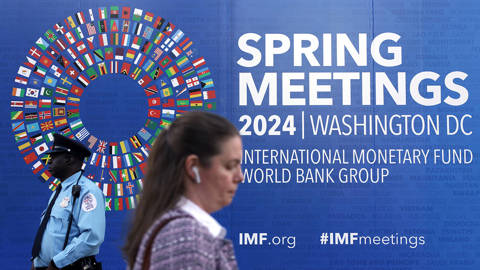

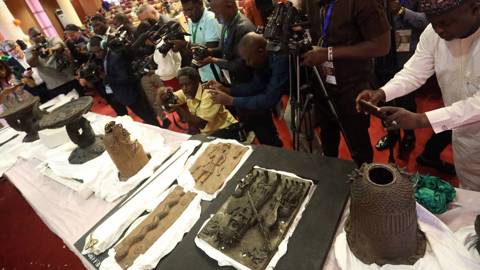
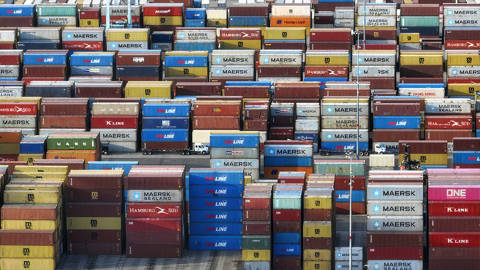
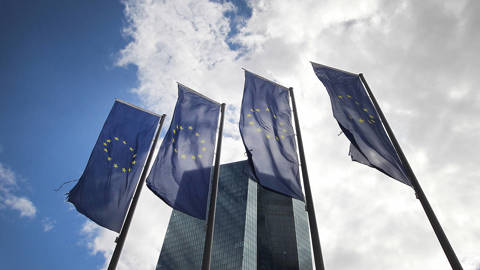

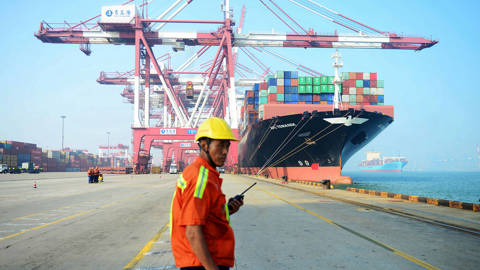

CAMBRIDGE: Yesterday, America joined Europe in agreeing on the principles of economic reform in China that will permit China to enter the World Trade Organization. This sets the stage for China's membership in the WTO by the end of 2000. China's addition to the WTO brings 1.3 billion people - more than one-fifth of humanity - formally into the mainstream of the international economy. This is an epochal change of direction for China's relations to the world that trace back to events five centuries ago.
For economists and historians with a long view, China's situation in the world poses a puzzle. Simply put, why is China so poor today? GNP per person averages around $3,200, compared with around $25,000 on average in the US and Europe, when such calculations are made at a standardized set of prices. The puzzle is that, from 550 to 1500 AD, Chinese civilization once led the world in technology and probably in economic well-being. China's relative decline for the last 500 years is one of the greatest themes of world history.
Turn the clock back six centuries, to the early 1400s. China could boast technological wonders - the compass, navigational abilities, the printing press, fireworks and explosives - that barely touched the rest of the world. China's state had been unified for more than 1500 years; its statecraft was considerably sophisticated. Chinese fine arts, exemplified by its porcelains that would be craved by the world for centuries to come, were remarkable by the standards of any age. Perhaps the greatest symbol of these accomplishments in the early years of the 15th century were the great naval expeditions of the Chinese fleet, in which ships of monumental proportion sailed the routes of Southeast Asia, to India, and even to East Africa during the years 1405 to 1431. Archeologists today find Chinese porcelain shards in Kenya and Tanzania.
Then China's dominance faded. While economists, historians, political theorists, and demographers, can all add something to the puzzle, my view is that, more than anything, China turned its back to the world. In the 1430s, China abandoned naval expeditions, dismantling its fleet. The imperial court, under a financial squeeze and threatened by nomadic incursions from Central Asia, canceled the naval expeditions in the 1430s, moved the capital inland to Beijing, and began isolating China for centuries to come. Decree followed decree, eliminating the shipyards, closing ports, and forbidding Chinese to leave the mainland. Trade and exchange continued only at a trickle.
China unilaterally abandoned its role in the world. By the time Adam Smith wrote AThe Wealth of Nations@(1776) he could accurately describe China as a rich civilization held back by archaic laws of trade isolation. He noted that the Chinese held foreign commerce Ain the utmost contempt.@ While China retreated into a shell, Europe exploded on the world scene. Smith described the European discoveries of the sea passage to Asia (around the southern tip of Africa) and the Americas as the two greatest events in world history. Globalization was born, but it was Europe, not China, which grabbed the lead.
China squandered its economic and technological potential by itself, not because of external force. By the time Europe and China crossed paths in the Opium Wars of 1839-42, a technologically superior Europe had vast military advantages and so forced China into a series of unilateral, humiliating concessions. China's imperial state and society were destabilized by European incursions. The imperial dynasty collapsed in 1911, under external pressures and internal demands for change.
SPRING SALE: Save 40% on all new Digital or Digital Plus subscriptions
Subscribe now to gain greater access to Project Syndicate – including every commentary and our entire On Point suite of subscriber-exclusive content – starting at just $49.99.
Subscribe Now
Change, however, did not come smooth. The dynasty's collapse was followed by civil strife, Japan's invasion of China in the 1930s, World War II, civil war, and thirty years of disastrous and cruel dictatorship under Mao Zedong and the Chinese Communist Party.
It wasn't until 1978, under Deng Xiaoping, that China opened up to the world. Of course, Deng was more interested in economic reform than political liberalization, but the liberalization of the 1980s and 1990s was extraordinary by any standard, essentially the first time in several centuries that a sovereign China willingly adopted policies of open trade with the rest of the world. Admission of China to the WTO will consolidate the reforms started in 1978, as China formally accepts open trade and shared rules of international economic life, as a sovereign and equal member of the international community.
Critics of free trade with China say that its political system remains authoritarian. They have a point, but not a decisive one. China is indeed burdened by an authoritarian political system, one that has been authoritarian for two millennia. Indeed, only an authoritarian state could have closed China by edict for several centuries, and only an authoritarian state could have led China into the disasters of man-made famine, failed economic policy, and cultural destruction that marked Mao's rule.
China's turn towards openness is making deep inroads, creating a more open, free, and vibrant society than in the past. China's young generation, and the ones that will follow, will want and demand political freedoms to accompany their increased economic opportunities and participation in world events. In the coming decades China's opening to the world will also prove to be an opening to Chinese democracy, good for China and good for the rest of us as well.